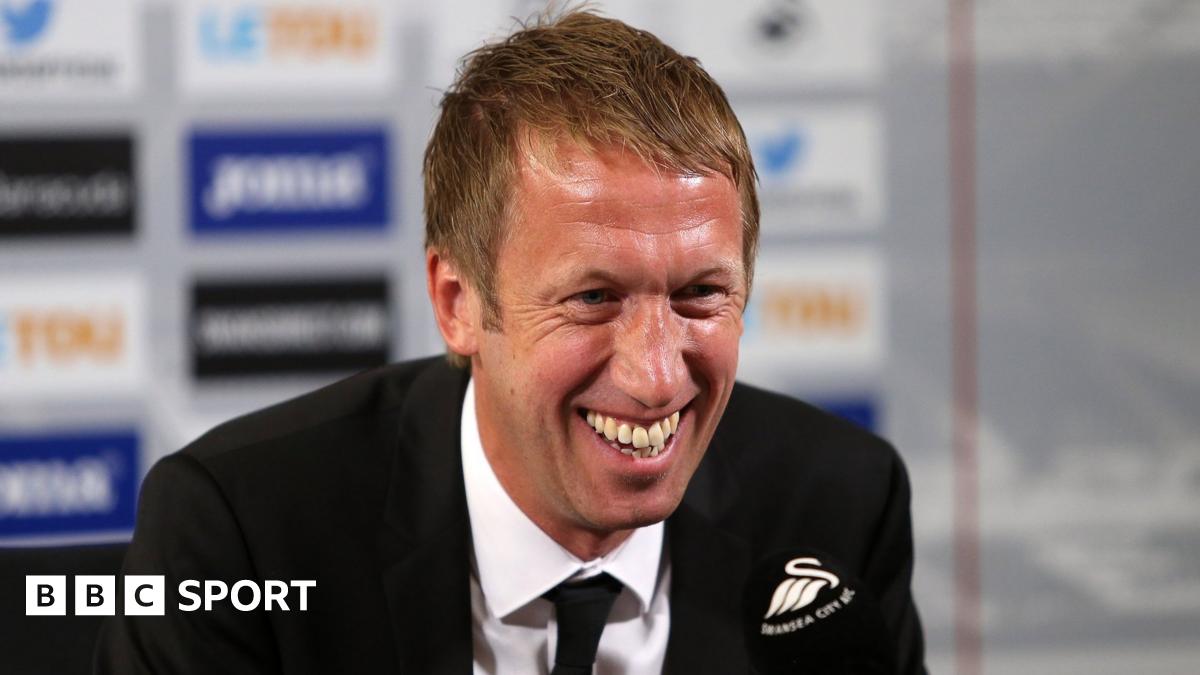
Graham Potter: Swansea City’s scholarly new manager
[ad_1]
It was sitting on a team coach at the tail-end of an unremarkable football career when Graham Potter decided he wanted to go back to school.
A professional footballer for 12 years, taking in 10 clubs, Potter played in all five top divisions in England but describes his career as “pretty rubbish.”
Potter was sifting through a tabloid newspaper on route to another lower league ground or another when he decided education was to be his future.
It was then his Eureka moment occurred as he felt he was not really engaging with the material.
“That is right, there were two things. I was skim-reading a tabloid on the bus, just not taking it in,” he explained.
“My mum had always pressed on me to continue my education, and it was just the volatility of sport in terms of not being able to control the result.”
The result? A five year stint in the education sector, though his return to learning started when he was still playing for Southampton and working towards a social sciences degree.
Potter took on development roles at two universities, Hull and then Leeds Metropolitan after hanging up his boots, while also completing a Master’s in leadership and emotional intelligence.
“In football you can work hard, play well and still lose,” Potter continued.
“It is a game so you can lose, so I liked the idea of working towards something and getting something you cannot take away from you [a degree]. That’s what you get from the education sector.
“I would like to think it made me more rounded.
“I was not confident when I stopped playing, I did not like standing up in front of people or the sound of my own voice.
“I needed to try and gain some confidence. I did not just want to be the ex-footballer. I wanted to be more than that and I liked learning.
“I remember getting on the team bus after one game, my degree was in American politics and the EU, and the lads were looking at me going ‘what on earth are you doing?’ But I enjoyed it.”
Then came the task of turning theory into practice.
“I was 30 years-old and had stopped playing. I realised I wanted to coach and I wasn’t going to get the opportunities but also I wasn’t good enough to get the opportunities as a 30-year-old ex-player for 12-13 years,” Potter explains.
“My skillset at that particular time wasn’t good enough to get a coaching job at any sort of level. Like everybody I needed to learn to be a coach, I needed to practise that and make mistakes in a decent environment where I could develop myself and not fear I was going to lose my job.
“I had five years in the university sector which was a time where I could make my mistakes, develop with the students and players there. I also worked with the people at the university to put some concept and theory on my own experiences.”
[ad_2]
Source link




